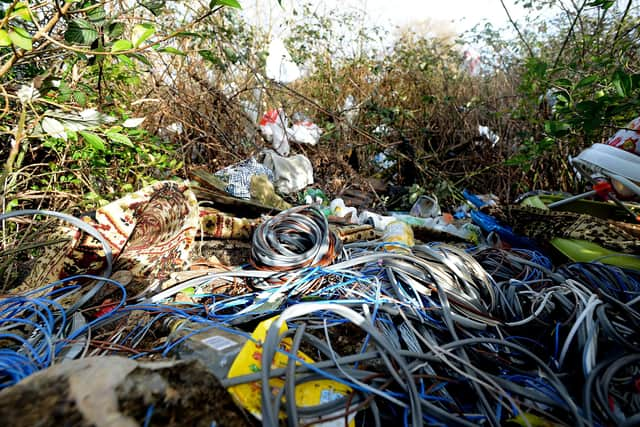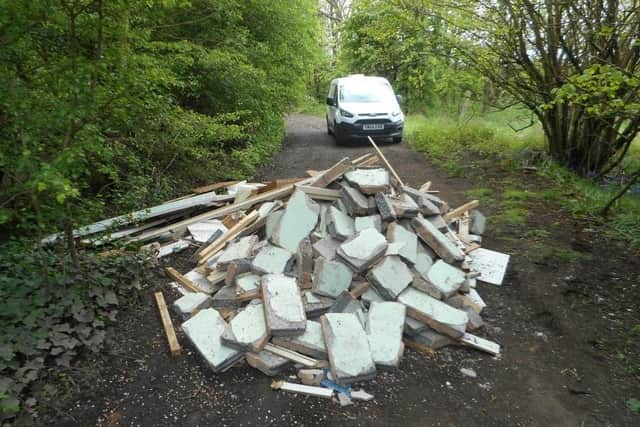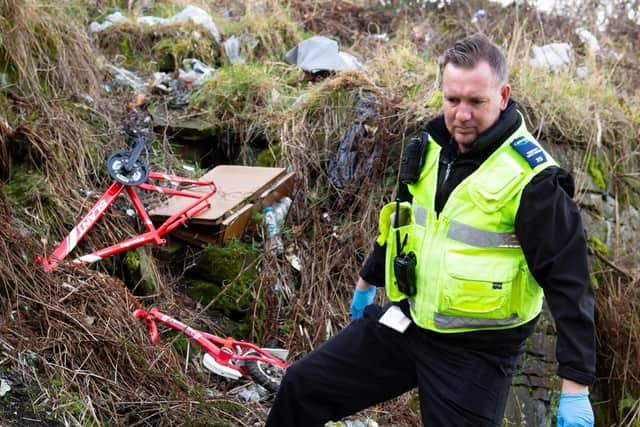Councils are counting the cost of organised criminal flytipping gangs
and live on Freeview channel 276
Analysis found the number of incidents of large-scale fly-tipping has more than doubled since 2012.
Police and environmental groups say the nature of fly-tipping is changing - a shift driven by a surge in criminal gangs offering illegal waste clearing services.
Advertisement
Hide AdAdvertisement
Hide AdEach year, councils across England and Wales collate the number, size and cost of illegal rubbish dumping in their areas.


Anything above the size of a lorry-load can be investigated by the Environment Agency, though the cost of clearance lies with the local council.
While the total number of fly-tipping incidents in England has hovered around the one million mark in recent years, the largest type of tips - sometimes covering whole parks - has risen 117 per cent since 2012.
The incidents are costly to clear and our analysis over has found councils have spent more than £59m on their removal since 2012.
Advertisement
Hide AdAdvertisement
Hide AdIn Wakefield the number of incidents increased over the period from 2011-12 to 2018-19.


But the figure for the individual years showed the number had decreased year-on-year from 2015-16.
There were 122 incidents in 2011-12, 226 in 2012-13, 232 in 2013-14, 239 in 2014-15, 419 in 2015-16,
Coun Maureen Cummings, Wakefield Council’s cabinet member for environment, communities and poverty, said: “Like many councils, the problem of fly-tipping continues to create challenges in Wakefield.
Advertisement
Hide AdAdvertisement
Hide Ad“The council’s #AskRecordKeep fly-tipping campaign, which is running alongside our award-winning #LitterPickMeUp campaign, is highlighting to residents their responsibilities under the Duty of Care legislation.


“This warns residents against the use of unlicensed, rogue waste carriers, explaining their responsibilities and the possible penalties they can face.”
“We do pursue enforcement action in cases where there is evidence, using the powers available to us as an authority to issue fines, seek prosecutions and seize vehicles.” Since 2012, there have been 191,968 large-scale tips recorded across England.
The total number recorded by Defra last year (36,263) was up by 117 per cent on the figure recorded in 2012-13, when the number of large scale fly-tips was 16,702. Tipper lorry loads accounted for just over 125,000 of the total number of major incidents, while “significant/multi-loads” were recorded for just under 67,000 major incidents. Since the 2012-13 financial year, councils in England have spent just over £59 million clearing large scale tips. The bill for such incidents was at its highest in 2018-19.
Advertisement
Hide AdAdvertisement
Hide AdThe cost of removing such large-scale fly-tipping last year took up a 21 per cent chunk of the overall clearance cost in England - even though the number of large incidents accounted for only 3.4 per cent of the total of all fly-tipping incidents reported.
In 2012-13, the proportion of money spent on clearing major tips stood at just 14 per cent.